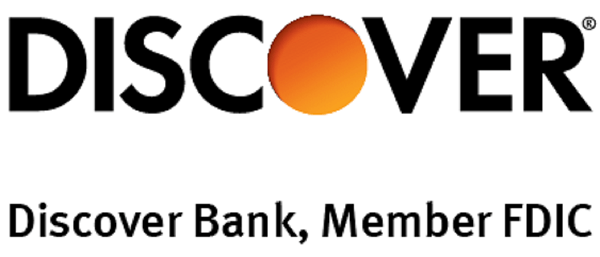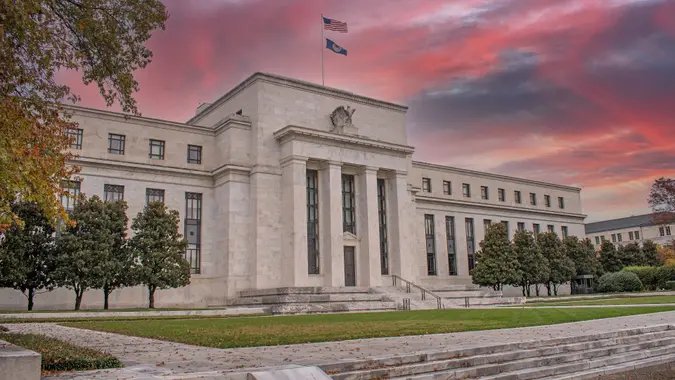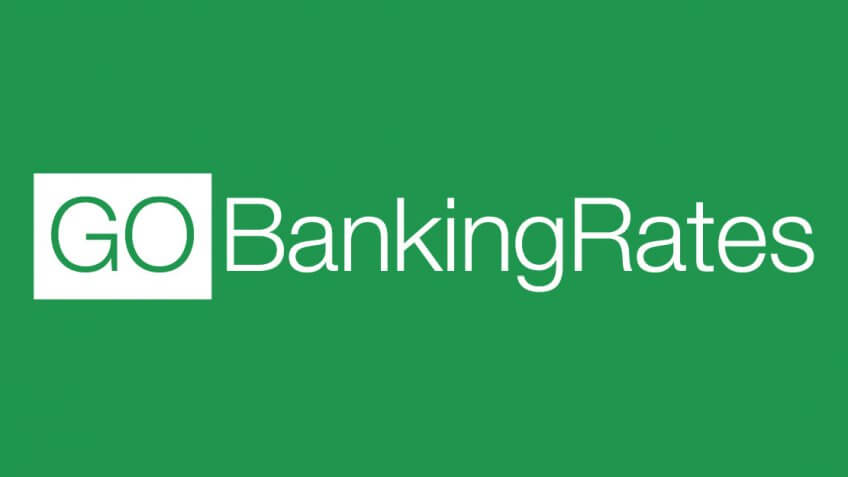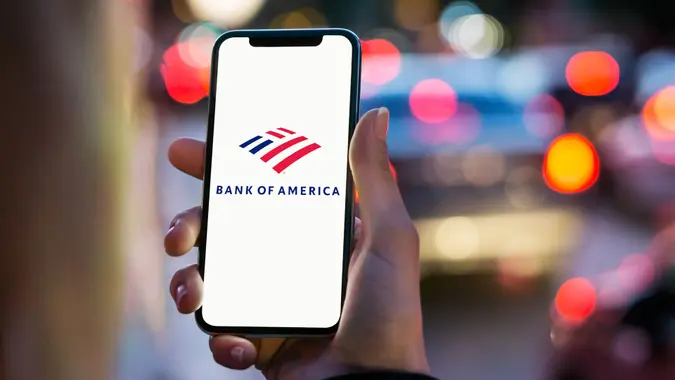Chase Savings Account Interest Rates for 2025

Commitment to Our Readers
GOBankingRates' editorial team is committed to bringing you unbiased reviews and information. We use data-driven methodologies to evaluate financial products and services - our reviews and ratings are not influenced by advertisers. You can read more about our editorial guidelines and our products and services review methodology.

20 Years
Helping You Live Richer

Reviewed
by Experts

Trusted by
Millions of Readers
If you’re a regular Chase customer, or considering opening an account there, it’s good to know the amount of interest you’ll accumulate monthly or annually. Here’s a look at what Chase has to offer.
What Is the Chase Savings Account Interest Rate Right Now?
Chase offers three savings accounts: a standard savings, a Premier savings and Private Client savings. All accounts offer a APY on all balance tiers, with interest compounded and credited monthly. If you qualify for relationship rates, you can earn .
| Account Name | APY | Relationship APY |
|---|---|---|
| Chase Savings | ||
| Premier Savings | ||
| Private Client Savings |
Chase Savings℠
The standard Chase Savings account offers an APY of . This account comes with a $5 monthly service fee, which can be waived if you:
- Maintain a minimum daily balance of $300
- Have at least $25 in repeating automatic transfers
- Have a linked Chase College Checking account
- Are younger than 18
- Have a linked Premier Plus Checking℠, Chase Sapphire℠ Checking or Private Client Checking℠ account
| Feature | Details |
|---|---|
| Minimum balance | $0 |
| Automated savings option | Yes — Autosave feature available |
| Monthly fee | $5 |
| Ways to waive monthly fee | – Maintain a $300+ daily balance – Have at least $25 in Autosave transfers – Link to a Chase checking account |
Chase Premier Savings℠
The Chase Premier Savings account offers a slightly higher APY of on all balances if you qualify for a Premier relationship rate through Chase.
In order to earn the Premier relationship rates, you must do the following:
- Link a Premier Plus Checking or Chase Sapphire Checking account
- Initiate at least five transactions from your linked checking account each month
This account comes with a $25 monthly service fee, which can be waived if you maintain a minimum daily balance of $15,000 or have a linked Premier Plus Checking or Chase Sapphire Checking account.
| Feature | Details |
|---|---|
| Minimum balance | $0 |
| Relationship rate eligibility | – Have a linked Chase checking account – Complete at least five customer-initiated transactions monthly |
| Monthly fee | $25 |
| Ways to waive monthly fee | – Maintain at least a $15,000 daily balance – Link to a Chase checking account |
Chase Private Client Savings
For high-net-worth consumers, Chase offers a Private Client Savings account. Although the savings rate is the same as the rate for Premier savings, a Private Client account provides additional services, access to J.P. Morgan Wealth Management professionals, no wire transfer fees and higher purchase and withdrawal limits.
You can waive the $35 monthly fee in one of two ways:
- Maintaining an average daily balance of at least $150,000 in this account or linked deposit or investment accounts
- Linking a Chase Platinum Business Checking account
| Feature | Details |
|---|---|
| Minimum balance | $0 |
| Relationship rate eligibility | Have a linked Chase Private Client checking account |
| Monthly service fee | $35 |
| Ways to waive monthly fee | – At least a $150,000 balance across Chase accounts – A linked Platinum Business Checking account |
How Do Chase Savings Accounts Compare to Other Options?
According to the FDIC, the average interest rate on savings accounts is 0.38%. That means a Chase savings account yields much lower interest rates than the national average.
In contrast to Chase, some banks offer APYs over 3%. It might be worth it to shop around when looking to open a new savings account.
| Bank | Account | Savings APY | Monthly Service Fee |
|---|---|---|---|
| Chase | Premier Savings | Up to | $35 — can be waived |
| Ally | Savings | None | |
| Discover® Bank, Member FDIC | Online Savings | None |
Chase vs. Ally Bank
Ally Bank offers a high-yield savings account with an APY of and no monthly fees.
In addition to a competitive rate, Ally provides features designed to help customers manage their savings effectively. The savings buckets feature allows users to categorize their funds, making it easier to track financial goals.
Additionally, the Surprise Savings tool analyzes your linked checking account for extra funds that can be saved and automatically transfers them into your high-yield savings account.
Chase vs. Discover Bank
Discover Bank offers a high-yield savings account with an APY of and no monthly fees.
One of its standout features is the ability to transfer cashback rewards earned from a linked Discover account directly into a high-yield savings account, helping customers grow their savings effortlessly.
SELECTED BANK
MOST COMPARABLE
MOST COMPARABLE
Fees
Fees
Fees
$5 monthly, waivable
$0
No monthly service fee
APY
APY
APY
Min Opening
Min Opening
Min Opening
$0
$0
$0
Should You Open a Chase Savings Account?
If you’re thinking about opening a Chase savings account, consider the following pros and cons:
Pros
- Large branch network and ATM access
- Mobile app with automatic savings tools
- Easy to link with Chase checking accounts for perks and fee waivers
Cons
- Low APYs compared to online banks
- Monthly service fees unless you meet waiver criteria
- Relationship rates require extra steps and linked accounts
Other Chase Savings Options
Of course, as a large national bank, Chase offers other account options besides savings accounts.
Certificates of Deposit (CDs)
You can consider long-term or short-term CDs if you are saving for a goal on a specific timeline. Right now, a 4-month CD with a minimum deposit of $100,000 can earn a APY.
Most Chase CDs require a minimum opening deposit of $1,000. You will need a linked Chase personal checking account to earn the highest APYs available.
AutoSave Features
Compared to many online financial institutions, Chase doesn’t offer much in the way of additional features for its savings accounts. However, you can schedule automatic transfers to your savings account from a linked Chase checking account.
It’s also easy to transfer money from checking to savings with a few clicks in the Chase Mobile App.
Final Take
As one of the largest banks in the country, Chase is a well-known brand that offers a few different savings account options. The APYs tied to these Chase savings accounts are relatively low, though. If you are comfortable with their rates, then a Chase savings account might make sense in light of the bank’s expansive physical presence. However, if you’re comfortable working with an online bank, you will likely find more competitive APYs elsewhere.
FAQ on Chase Savings Account Interest Rates
Here are the answers to some commonly asked questions about Chase's savings account interest rates.- Does Chase have a high-yield savings account?
- Chase does not offer a high-yield savings account. If you're looking for one, it's a good idea to consider your options at online banks, which typically offer higher rates than those offered by brick-and-mortar banks.
- What is the Chase savings account interest rate right now?
- Rates vary based on the savings account you choose, but go up to 0.02%.
- How do you qualify for the Chase Premier Savings relationship rate?
- To qualify for relationship rates, you must link a Premier Plus or Sapphire Checking account and complete at least five monthly transactions.
- What is the Chase Private Client savings account?
- It's a premium savings account for high-net-worth individuals that includes access to financial advisors, waived fees and other perks.
- How can I avoid monthly fees on a Chase savings account?
- Maintain the required minimum balance or link your savings to a qualifying checking account to waive the monthly fee.
More on Chase Bank
- Chase Bank Review
- Chase Bank Promotions
- Chase Bank Fees
- Chase ATM Withdrawal and Deposit Limits
- How To Open a Chase Checking Account
Sarah Sharkey, Caitlyn Moorhead and Caitlin Cao contributed to the reporting for this article.
Rates are subject to change; unless otherwise noted, rates are updated periodically. All other information on accounts is accurate as of July 18, 2025.
The information related to Chase Savings and Chase Premier Savings was collected by GOBankingRates and has not been reviewed or provided by the issuer of these products. Product details may vary. Please see the issuer’s website for current information. GOBankingRates does not receive commission for these products.
J.P. Morgan Wealth Management is a business of JPMorgan Chase & Co., which offers investment products and services through J.P. Morgan Securities LLC (JPMS), a registered broker-dealer and investment adviser, member FINRA and SIPC. Insurance products are made available through Chase Insurance Agency, Inc. (CIA), a licensed insurance agency, doing business as Chase Insurance Agency Services, Inc. in Florida. Certain custody and other services are provided by JPMorgan Chase Bank, N.A. (JPMCB). JPMS, CIA and JPMCB are affiliated companies under the common control of JPMorgan Chase & Co. Products not available in all states.
INVESTMENT AND INSURANCE PRODUCTS: • NOT A DEPOSIT • NOT FDIC INSURED • NOT INSURED BY ANY FEDERAL GOVERNMENT AGENCY • NO BANK GUARANTEE • MAY LOSE VALUE
Editorial Note: This content is not provided by Chase. Any opinions, analyses, reviews, ratings or recommendations expressed in this article are those of the author alone and have not been reviewed, approved or otherwise endorsed by Chase.
Our in-house research team and on-site financial experts work together to create content that’s accurate, impartial, and up to date. We fact-check every single statistic, quote and fact using trusted primary resources to make sure the information we provide is correct. You can learn more about GOBankingRates’ processes and standards in our editorial policy.
- Federal Reserve. "Open Market Operations."
- FDIC. 2024. "National Rates and Rate Caps."
 Written by
Written by  Edited by
Edited by 




























